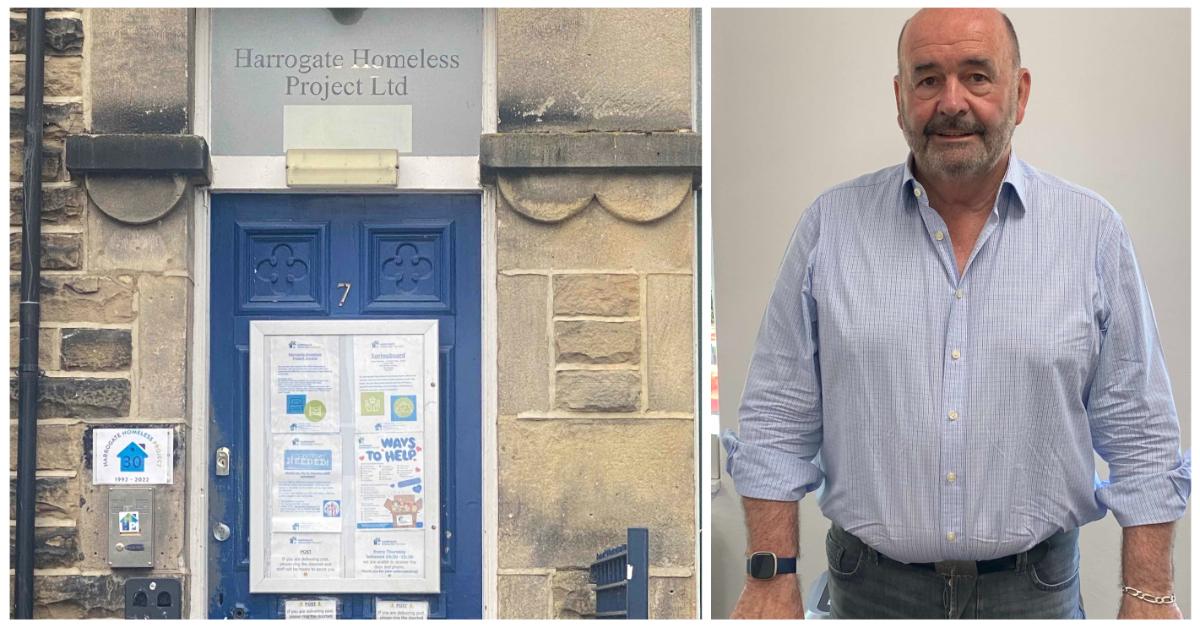Subscribe to trusted local news
In a time of both misinformation and too much information, quality journalism is more crucial than ever. By subscribing, you can help us get the story right.
- Subscription costs less than £1 a week with an annual plan.
Already a subscriber? Log in here.
16
Jul 2022
Homelessness in Harrogate — what's the best way to help?

Few topics arouse greater emotions in the Harrogate district than homelessness.
Most residents are highly sympathetic to people sleeping in shop doorways in places like Harrogate's Parliament Street.
But some regard them as a blight on the town's image and call for the 'tramp camps' to be dispersed.
And there is widespread confusion over whether it's cruel or kind to give money to people on the streets.
Harrogate Homeless Project has been on the frontline of helping rough sleepers for 30 years.
Francis McAllister, the new chief executive, is keen to extend its services and raise the charity's profile in the town.
Emergency accommodation
Harrogate Homeless Project, which employs 29 staff, is best known for its Bower Street hostel, which provides emergency accommodation for up to 21 people in 16 rooms. If people turn up with nowhere to go at 2am, the hostel takes them in.
Mr McAllister, a Northern Irishman with a strong background in the voluntary sector at charities including Barnardo's, the NSPCC and St George's Crypt in Leeds, describes the hostel as "the revolving door of homelessness", helping people with damaged, chaotic lives and multiple addictions.
The organisation also provides 'move-on' accommodation and support for people who want to get off the streets.
It also offers services at Springboard Day Centre, which operates out of the Wesley Centre in Harrogate. Anyone can turn up Monday to Friday lunchtimes and receive a meal, no questions asked.

The Wesley Centre
For many it's their only decent meal of the day. The hostel also provides a GP drop in, psychotherapy and counselling, a hairdresser, a podiatrist and even a drop-in vet service.
Mr McAllister wants to extend this further by getting more agencies involved to help those keen to make the transition to independent living. Cookery lessons are one example. He says:
If Harrogate Homeless Project is to broaden its impact, it needs more volunteers and funding.
It currently receives about £500,000 a year. About 10% to 20% comes from statutory sources, including Harrogate Borough Council; the rest is mainly from trust and grants.
Very little comes from public donations, which seems strange given how visible and emotive homelessness is.
Read more:
- Harrogate Homeless Project appoints new chief executive
- New Harrogate Station Gateway details revealed today
Giving to rough sleepers
The charity recently appointed its first professional fundraiser and Mr McAllister hopes this will not only generate funds but also help to raise awareness of the organisation and its work so that it becomes as natural a cause for local people to support as, for example, Yorkshire Air Ambulance.
Does he recommend giving to people in the street, many of whom have addictions?
With the cost of living crisis, Harrogate Homeless Project is set to get busier.
It hopes local people will rally to its cause. Mr McAllister says:
0